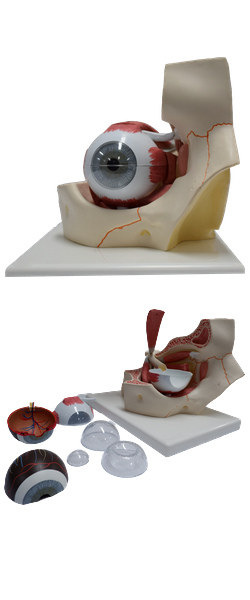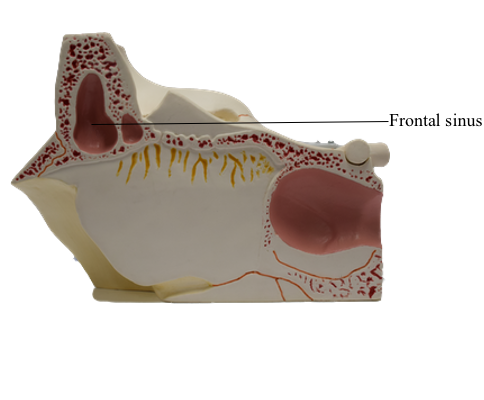Main Model

Orbit : 25 Frontal sinus

Paranasal Sinuses
The paranasal sinuses are air-filled extensions of the respiratory part of the nasal cavity into the following cranial bones: frontal, ethmoid, sphenoid, and maxilla. They are named according to the bones in which they are located. The sinuses continue to invade the surrounding bone, and marked extensions are common in the crania of older individuals.
Frontal Sinuses
The right and left frontal sinuses are between the outer and inner tables of the frontal bone, posterior to the superciliary arches and the root of the nose. Frontal sinuses are usually detectable in children by 7 years of age. The right and left sinuses each drain through a frontonasal duct into the ethmoidal infundibulum, which opens into the semilunar hiatus of the middle nasal meatus. The frontal sinuses are innervated by branches of the supra-orbital nerves (CN V1).
The right and left frontal sinuses are rarely of equal size, and the septum between them is not usually situated entirely in the median plane. The frontal sinuses vary in size from approximately 5 mm to large spaces extending laterally into the greater wings of the sphenoid. Often a frontal sinus has two parts: a vertical part in the squamous part of the frontal bone, and a horizontal part in the orbital part of the frontal bone. One or both parts may be large or small. When the supra-orbital part is large, its roof forms the floor of the anterior cranial fossa and its floor forms the roof of the orbit.